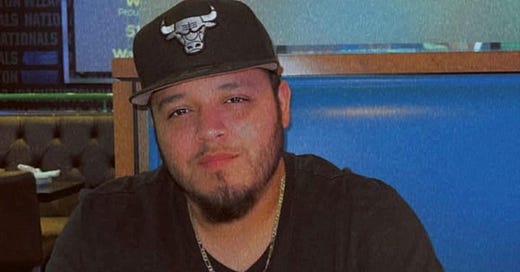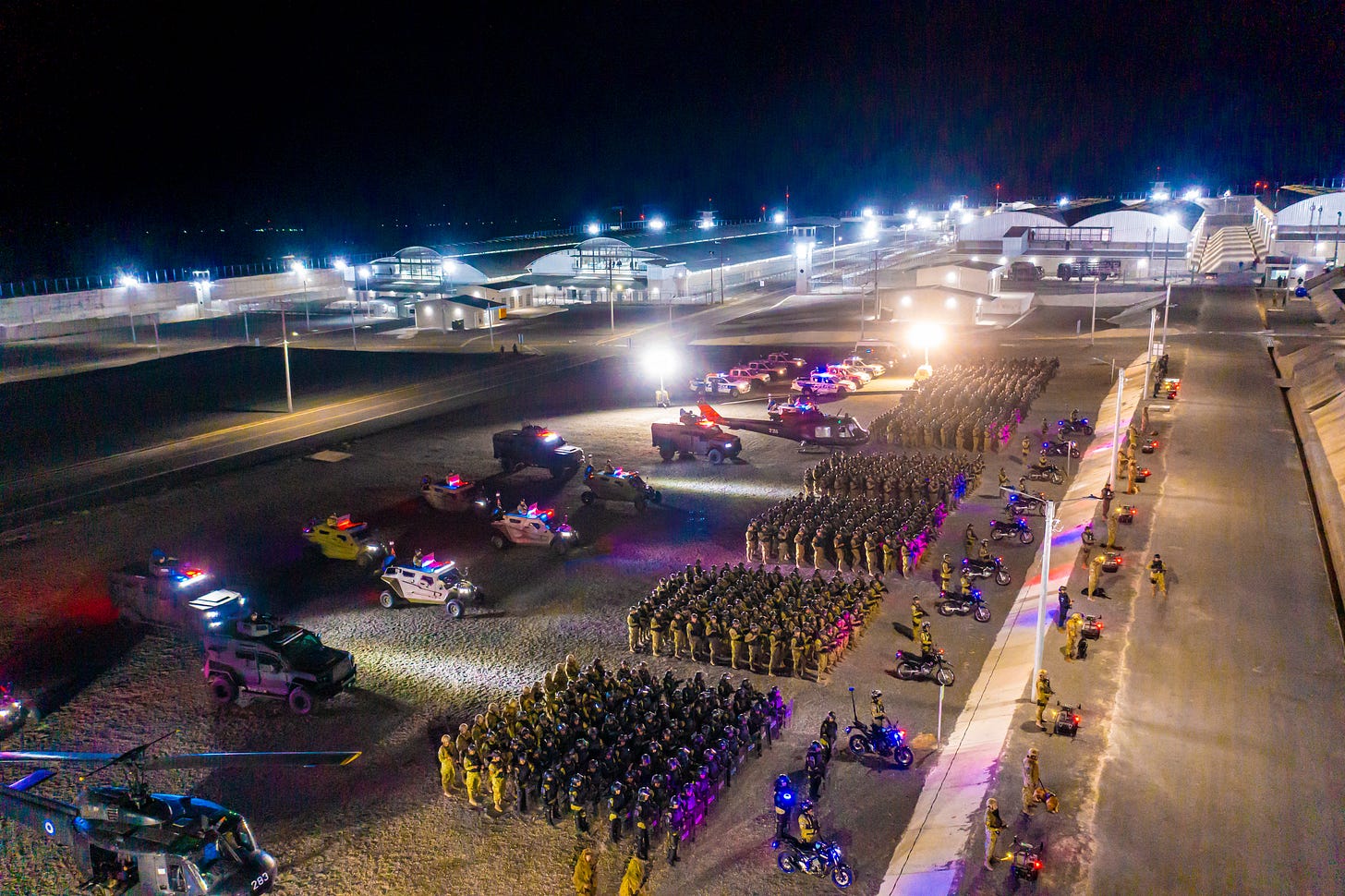The Deportation of Kilmar Abrego Garcia and the Controversial Star Witness Deal
The Immigrant with no Criminal Record is Imprisoned, a Three-time Convicted Felon Walks.
Related Articles: CECOT and Bukele of El Salvador, ICE and Selective Enforcement, Jan 6th and LA protests, and Protests and Policy.
Kilmar Abrego Garcia. Source: PBS.
On a March morning in 2025, after getting off work as a union apprentice, he was stopped by ICE agents who told him his immigration status had changed. Garcia was immediately arrested and detained. This was particularly shocking given that Garcia had been granted withholding of removal status in 2019 after an immigration judge ruled he faced a "well-founded fear of future persecution" from gangs in El Salvador.
The arrest was all the more jarring because Garcia had been living a quiet, law-abiding life in Maryland. He worked as a union sheet metal apprentice, was married to a U.S. citizen, and was raising three children who were American citizens. Unlike the typical targets of Trump's immigration crackdown, Garcia had "no reported criminal history of any kind"—a fact that federal judges would later emphasize when questioning the government's treatment of him.
The Deportation: Sent to Hell on Earth
What happened next defied both legal precedent and basic human decency. Despite the 2019 court order explicitly barring his deportation to El Salvador due to the danger he would face there, Garcia was loaded onto a deportation flight on March 15, 2025, along with more than 200 other immigrants. Their destination was not just any detention facility—it was CECOT, El Salvador's notorious maximum-security mega-prison designed specifically for the country's most dangerous gang members.
CECOT, formally known as the Center for the Confinement of Terrorism, represents a dystopian vision of incarceration. Built at a cost of $115 million, the facility can hold up to 40,000 inmates in eight sprawling pavilions. The conditions inside are deliberately brutal: prisoners never see daylight, are denied all visitors, and receive no educational programs or workshops. Each cell is designed to hold 65 to 70 prisoners in cramped conditions.
The prison's dining halls, break rooms, and gym facilities are reserved exclusively for guards—inmates have no access to recreation of any kind. El Salvador's justice minister has publicly stated that those held at CECOT "would never return to their communities", underscoring the facility's function as a place of permanent punishment rather than rehabilitation.
Prisoners being escorted to CECOT overnight. Source Wikpedia.
Life in CECOT: Systematic Torture and Disappearance
Garcia's months in CECOT subjected him to what human rights organizations have documented as systematic torture. According to Amnesty International, there is "systemic use of torture" in Salvadoran prisons, while the human rights group Cristosal concluded that "torture has become a state policy". Inmates face regular beatings, food deprivation, electric shocks, and medical neglect.
The conditions are so severe that hundreds of prisoners have died from malnutrition, blunt force trauma, strangulation, and lack of medical treatment. Many bodies are buried in mass graves without families being notified. The U.S. State Department's own 2023 report on El Salvador noted the "harsh and life-threatening prison conditions".
Perhaps most cruelly, Garcia was held incommunicado—unable to contact his family or legal representatives. His wife and three children had no way of knowing his condition or even confirming he was alive. This enforced disappearance violated international legal standards and subjected his family to months of agonizing uncertainty.
The Central Controversy: Trading Criminal Immunity for Testimony
As Garcia gained nationwide attention, the administration grew more and more desperate to charge him with something—justifying deportation. They decided to release a convicted felon from prison in exchange for his testimony against Garcia. Jose Ramon Hernandez Reyes, a three-time felon with an extensive criminal history who also was undocumented, has been freed from federal prison and transferred to a halfway house to serve as the government's star witness.
In exchange for testifying against Abrego Garcia, prosecutors have promised Hernandez Reyes he will be permitted to stay in the U.S. for at least a year and may be eligible for work authorization. This arrangement has drawn sharp criticism from immigrant rights advocates, with Lisa Sherman Luna of the Tennessee Immigrant and Refugee Rights Coalition calling it "wild" and describing it as "further evidence of how the government is using Kilmar's case to further their propaganda and prove their political point".
The Witness: Jose Ramon Hernandez Reyes' Criminal History
Hernandez Reyes’ Mugshot. Source: Montgomery, Texas Mugshots.
In contrast to the clean record of Garcia, Hernandez Reyes has been either arrested or in prison every year for the past decade, with a criminal record that includes:
Federal Convictions:
Human smuggling (2020) - sentenced to 18 months in federal prison
Illegal reentry into the United States after deportation
Drunkenly discharging a firearm in a residential neighborhood
Additional Criminal History:
2015: Fined for public intoxication in Virginia
2016: Arrested for alleged cocaine possession in Texas
2017: Arrested for driving under the influence with a handgun in the car
2018: Illegally reentered the U.S. by wading across the Rio Grande
2018: Deported again after serving 30 days
December 2018: Pulled over in Mississippi with several undocumented migrants in his vehicle
Late 2022: Arrested while "highly intoxicated" for firing a handgun from a vehicle in broad daylight in Montgomery County, Texas
Hernandez Reyes admitted to transporting people into the country at $350 per person when he pleaded guilty to human smuggling charges associated with the December 2018 incident. He was serving a 30-month sentence in an Alabama federal prison when investigators interviewed him about Abrego Garcia.
The Trump Administration's Approach
The case has become emblematic of what critics describe as the Trump administration's willingness to prioritize deportation over consistent law enforcement principles. Despite Trump's campaign promises to focus on deporting "the worst of the worst" criminals, the administration has:
Released a multiply-convicted felon (Hernandez Reyes) from prison early
Promised him work authorization and at least a year's protection from deportation
And used this felon to secure the deportation of a man with no criminal record (Garcia)
Federal prosecutors acknowledged that Garcia's original deportation was an "administrative error", yet the administration has continued to pursue his removal, with rumors that they are planning to send him to an unspecified "third country" rather than El Salvador.
Legal and Judicial Response
Federal Judge Barbara Holmes has been highly critical of the government's case, ruling that prosecutors "failed" to prove Garcia poses a danger to the community and ordering his release pending trial. Holmes also questioned the reliability of Reyes.
The judge noted that the evidence against Garcia included "multiple layers of hearsay and authenticity issues" and called the evidence suggesting Garcia was affiliated with MS-13 "contradictory". Even Hernandez Reyes, the government's star witness, admitted he "didn't see visible signs that Abrego was a member of MS-13".
The Broader Implications
The case raises fundamental questions about prosecutorial priorities and the rule of law. As federal investigators began their investigation into Garcia only on April 28, 2025 - less than a month before returning an indictment based on allegedly years-old actions - critics argue the timing suggests the charges were developed to justify the mistaken deportation rather than pursue genuine criminal conduct.
The investigation appears to have been launched the same day that Trump's border czar Tom Homan held a White House press conference defending Garcia's deportation in the wake of a Supreme Court decision ordering the government to facilitate his return.
This case demonstrates the complex intersection of immigration enforcement, criminal justice, and political priorities in the current administration's approach to deportation policy. The decision to grant extensive concessions to a repeat criminal offender while aggressively pursuing a man with no criminal record has highlighted what critics see as the administration's inconsistent application of its own stated enforcement priorities. This sad situation suggests that the Trump administration is more interested in getting wins rather than any principled deportation of immigrants.
Notes: This is my own opinion and not the opinion of my employer, State Street, or any other organization. This is not a solicitation to buy or sell any stock. My team and I use a Large Language Model (LLM) aided workflow. This allows us to test 5-10 ideas and curate the best 2-4 a week for you to read. Rest easy that we fact-check, edit, and reorganize the writing so that the output is more engaging, more reliable, and more informative than vanilla LLM output. We are always looking for feedback to improve this process.
Additionally, if you would like updates more frequently, follow us on x: https://x.com/cameronfen1. In addition, feel free to send me corrections, new ideas for articles, or anything else you think I would like: cameronfen at gmail dot com.






